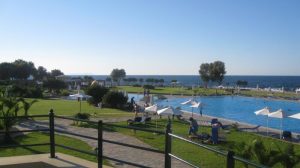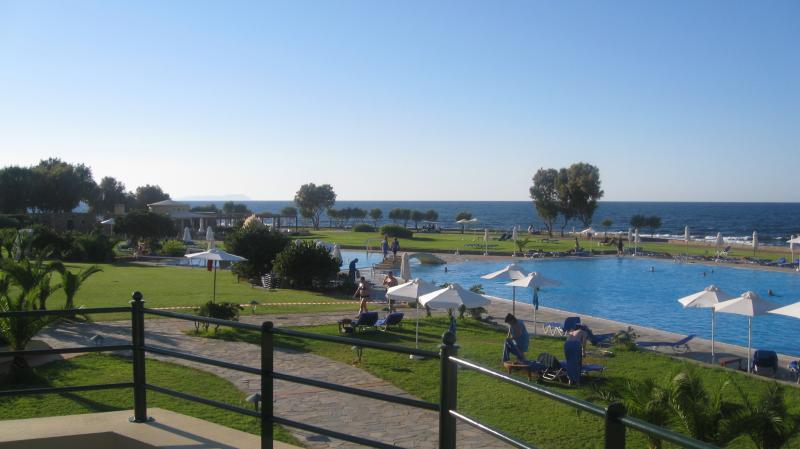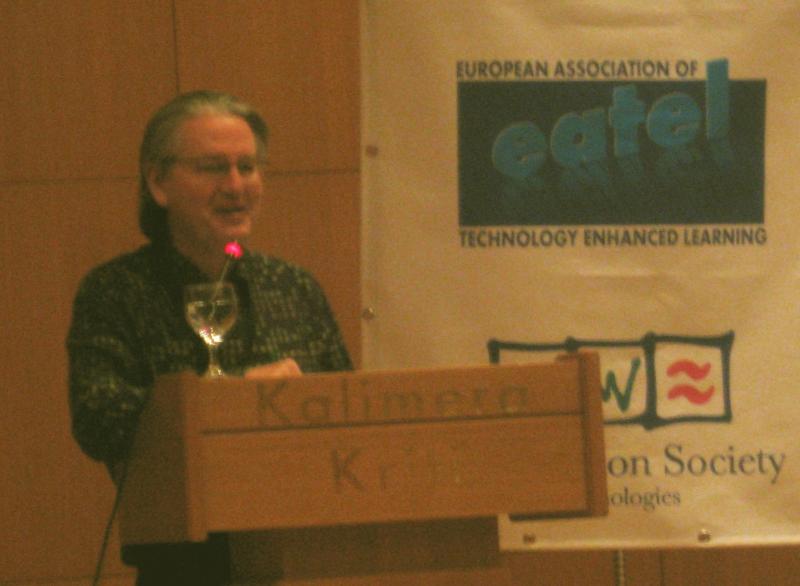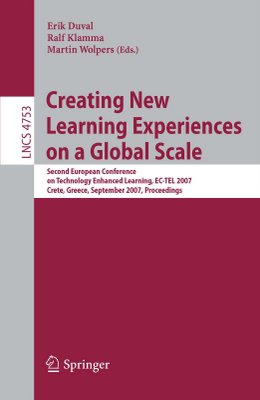News Story
ECTEL-07 Highlights
Peter Scott, Tuesday 25 Sep 2007
The Second European Conference on Technology Enhanced Learning – “Creating new learning experiences on a global scale”, was held in Crete, Greece, 17-20 September 2007. The spectacular Kalimeri Kriti resort hosted the second in this new TEL conference series. With the advance of Web 2.0 approaches to rip, mix & burn learning, wikis, blogs, syndication, user generated content, interactive TV, games and the ubiquitous availability of computing devices we can (and now HAVE to) offer more flexible learning services on a global scale. As one of the new objectives of the 7th Framework Program of the European Commission puts it: we need "Responsive environments for technology-enhanced learning that motivate, engage and inspire learners, and which are embedded in the business processes and human resources management systems of organizations". ECTEL-07 set itself the important challenge to examine the bridge between informal learning strategies of the knowledge society and formal competence development programs of organizations.
The EC-TEL series has pitched (and clearly suceeded) at providing unique networking possibilities for participating European researchers throughout the week long session that included EU project meetings, discussions for ongoing and new research activities supported by the European Commission, a successful TEL-doctoral session and some excellent workshops.
Keynotes this year were Bruce Sterling and Hermann Maurer. Bruce is professor at the European Graduate School and "visionary in residence" at the Art Center College of Design in Pasadena, California and one of the early visionaries of the "Internet of Things". His writings have introduced new memes (like spime) that continue to be an inspiration for many researchers. Bruce is also … a science fiction writer. Hermann is professor of computer science at the Technical University Graz in Austria, with an impressive list of achievements in the form of numerous papers, books, companies and patents. He is also … a science fiction writer! So Science Fiction – and the future of learning became a critical theme at this year’s conference – both keynotes treating us with presentations of their novels, and their challenging visions of a new world. Why is it that novelists tend to revel in the ‘distopian’ and (as Bruce would put it) somewhat melancholy vision of a dangerous future? At least Hermann ‘saved the world’ in his last few chapters!
The TEL COPs workshop (technology enhanced learning communities of practice) on the 17th Sept was a particular hightlight for me. The workshop focusedon current research trends in technology enhanced learning solutions that aim at addressing the multiplicity and complexity of needs of Communities of Practice all along their lifecycle. The workshop was aimed at approaches that build on the synergy of concepts such as multimedia information authoring and reuse, knowledge management, as well as argumentation, negotiation and collaboration support.
Our communities of practice paper focused on physically dispersed Technology-Enhanced Learning (TEL). These communities often require support for collaboration over extended periods of time, in what are effectively very long meetings. While there are a wide range of support systems for foreground interactions, such as phone calls and short meetings, and a similar range of tools for ‘background’ interactions, such as email and instant messaging. The paper presented data from a virtual ethnographic study of a working TEL community using the FlashMeeting videoconferencing application and the Hexagon ambient video awareness system, in tandem over month of active at-a-distance project planning. The study was a naturalistic insight into the use of online synchronous communication to support extended synchronous interaction between a working community of practice. Over an extended working period it seemed that a complex mix of planned and opportunistic interactions actually required a new set of working tools, managing the trade-off between awareness and disruption. Switching between foreground and background ‘meeting activity’ remains a very big challenge.
A communities of practice paper by Anna De Liddo, Grazia Concilio, and Simon Buckingham Shum, focused on supporting knowledge management and exchange between web-based and traditional collaborative environments. In particular they discussed the integration between a tool (CoPe_it!) supporting collaborative argumentation and learning in web-based Communities of Practices and a hypermedia and sense making tool (Compendium) acting as a personal and collective Knowledge Management (KM) system in traditional collaborative environments.
With so many more excellent pieces of work being presented and so many interesting participants – we are all eagerly awaiting ECTEL-2008.
Related Links:
- The ECTEL Conference Website
- The ECTEL 07 Main Proceedings
- The European Association of Technology Enhanced Learning



Connected
Latest News
Three KMi researchers were recognised as top scientists in Computer Science at the OU
KMi’s Generative AI mini-Scotland Tour
AI for the Research Ecosystem workshop #AI4RE
KMi congratulates Dr. Joseph Kwarteng for successfully defending his doctoral thesis







